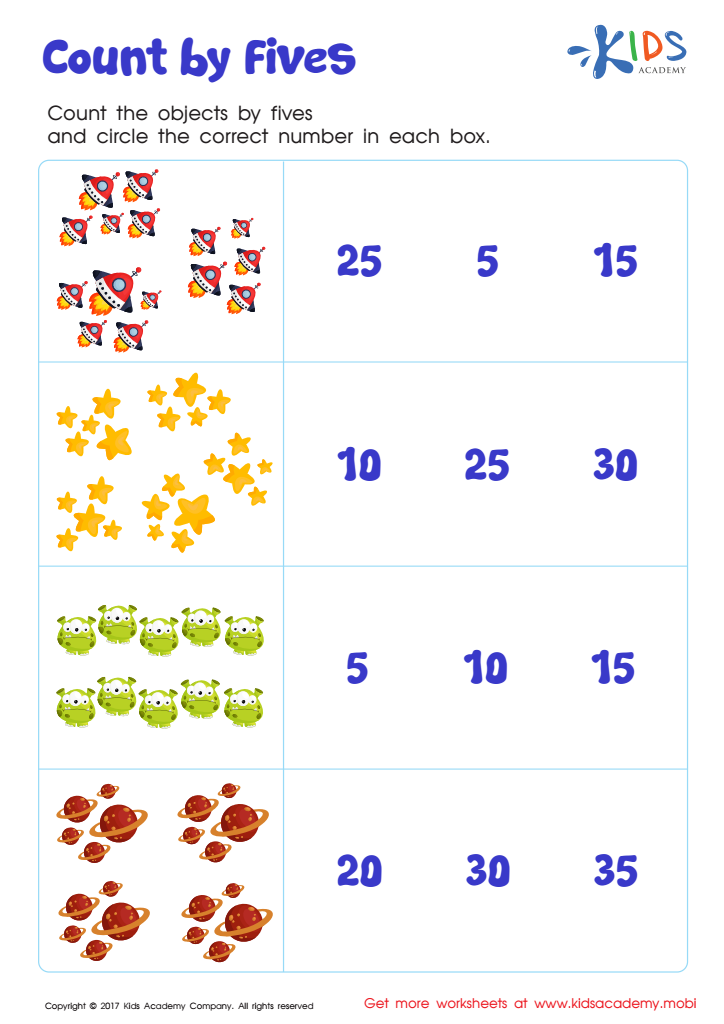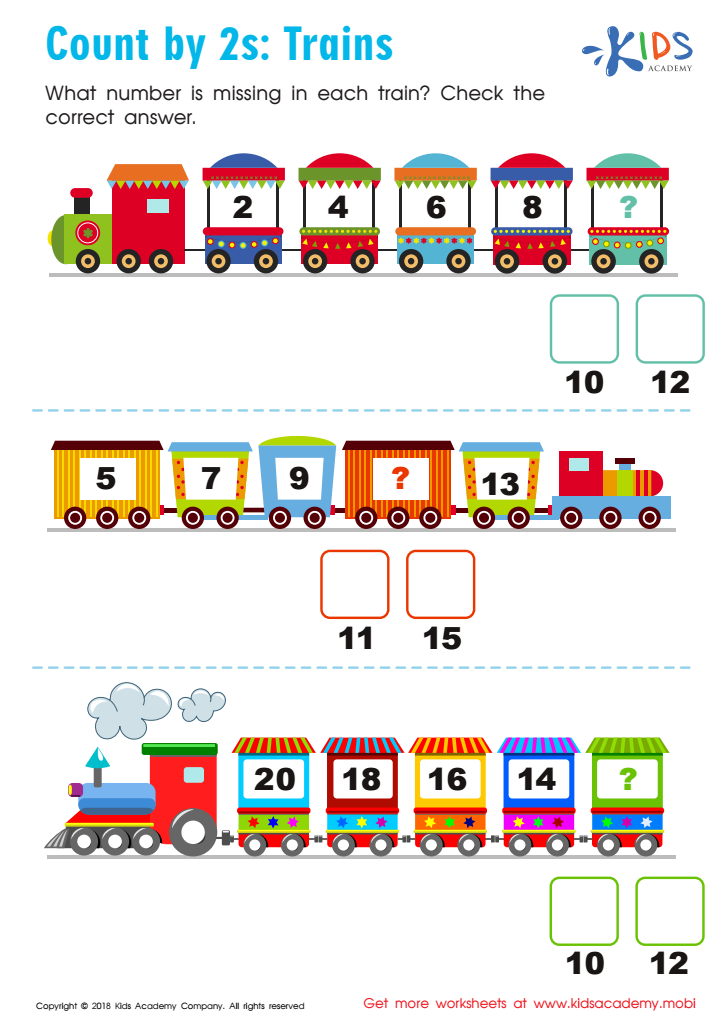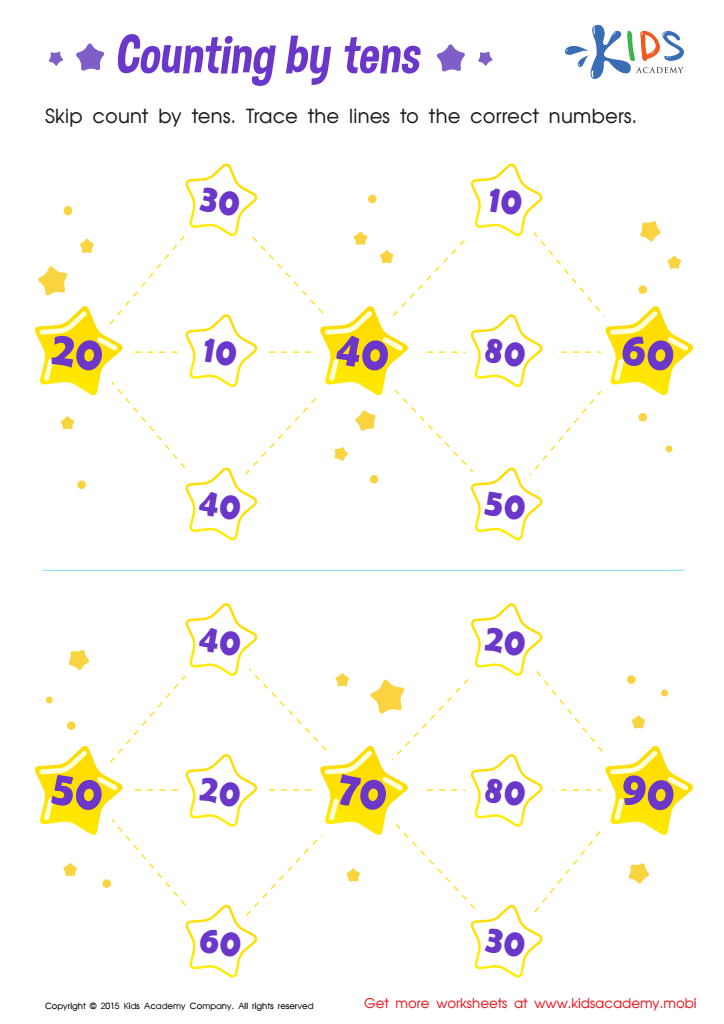Number Recognition Normal Counting Worksheets for Ages 7-9
3 filtered results
-
From - To
Unlock your child's potential in number recognition with our engaging Normal Counting Worksheets, specially designed for ages 7-9. These interactive resources help children master counting through fun activities that boost their confidence and mathematical skills. Our worksheets target essential learning objectives, allowing young learners to identify, write, and compare numbers with ease. With a variety of exercises that incorporate visual aids and real-life applications, your child will develop a solid foundation in understanding numbers. Ideal for home or classroom use, these worksheets make learning enjoyable and effective. Explore our collection today and watch your child excel in number recognition!


Skip Counting by 5s: Space Math Printable


Count by 2's: Trains Worksheet


Learn Dozens: Counting by Tens Printable
Number recognition and normal counting are critical building blocks in early math education for children aged 7-9. During these formative years, children develop foundational mathematical skills that are essential for their academic growth. Recognizing numbers helps children understand concepts of quantity, order, and value, enabling them to successfully grasp more complex mathematical ideas later on.
Parents and teachers should care about fostering these skills because they directly contribute to a child’s confidence in math, influencing their overall attitude toward the subject. Strong number recognition allows children to perform simple arithmetic operations, essential in everyday life as well as advanced learning in later grades. Moreover, when children can count confidently, they can participate in activities involving measurement, time, and money, which are crucial for their everyday decision-making.
Additionally, promoting number recognition and proper counting skills aids in cognitive development by enhancing memory and attention to detail. It creates a solid foundation for higher-level mathematical concepts like addition, subtraction, and even initial problem-solving skills. By integrating engaging activities and games around these skills, educators and parents can nurture a positive learning environment that promotes curiosity and a love for learning, setting children up for long-term success in math and beyond.
 Assign to My Students
Assign to My Students



.jpg)











